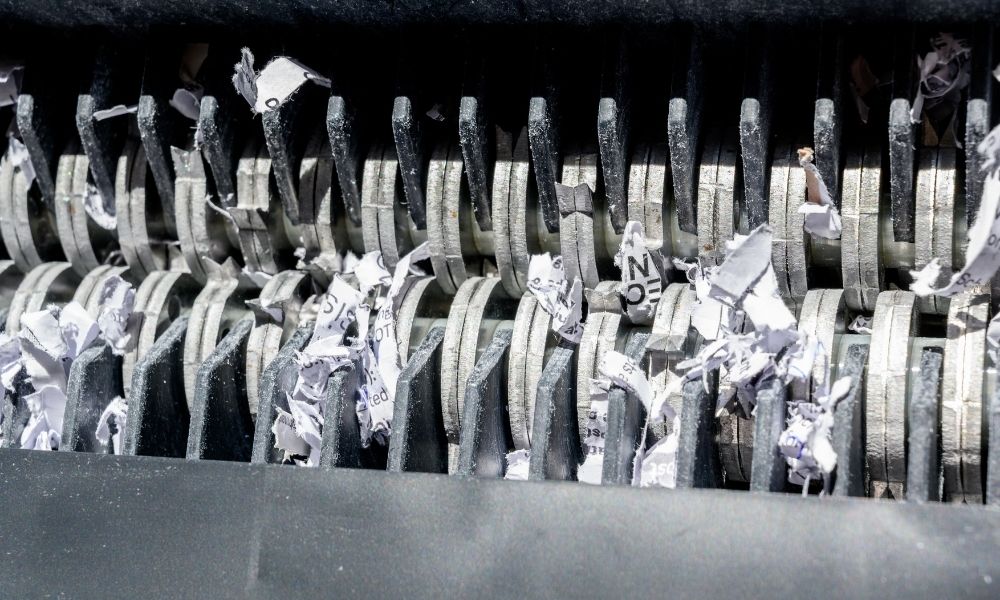Which Business Documents To Shred and When

As business leaders, we file lots of confidential paperwork, from banking information to product invoices. The safest way to dispose of these documents is to shred them. But you first need to know how long to hang onto them. Find out which business documents to shred and when to maximize the security of your business information.
Bank and Credit Statements
Always shred bank and credit statements before disposing of them. These documents contain important financial and personal information. Shredding them is the best way to ensure this information stays confidential. Fortunately, many banking services offer these statements online. So you don’t need to keep your banking and bill statements for as long as other documents. Shred them after a year of holding onto them for quick reference.
Tax Documents
Always shred both your business’s and employee’s tax documents. Keep all employees’ tax records for at least four years and keep your business tax records for seven years. Keep all tax records and supporting documents in case your business needs to dispute any issues with the IRS. Tax season comes heavy with documents. For your business’s safety, you must keep them all in a secure location and hang onto them for at least this seven-year span.
Human Resources Materials
Your business’s human resources department should oversee collecting and keeping much of your documents securely under file. Human resources will handle employee paperwork, such as pay stubs, personnel files, contracts, and more. To be safe, you should wait to shred all employee documents for seven years after employees have left the company. This is for your reference and the employee’s reference if they ever request the information on file. In fact, if your business has over 15 employees, the law requires that you keep these records for at least a year, though longer is the best practice.
Contact Information
A good rule of thumb is to look for contact information on any of your private documents. If any documents contain personal information, such as your name, business name, address, phone number, email address, and more, you should shred these to be safe. You’ll need an NSA-approved shredder for handling personal and private information like this.
Now that you know which business documents to shred and when to do so, you can help keep your business’s confidential information safe and secure. Shredding is the best way to dispose of confidential information safely, so invest in a high-quality shredder for your office or workspace.





